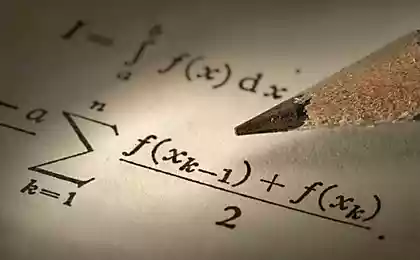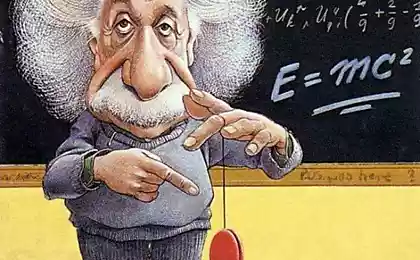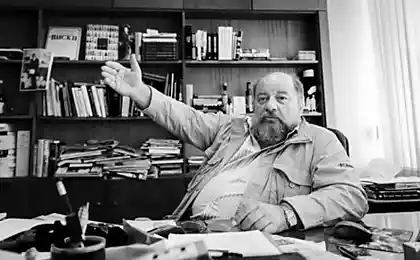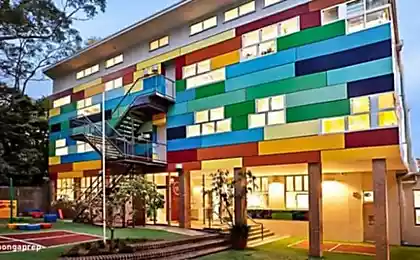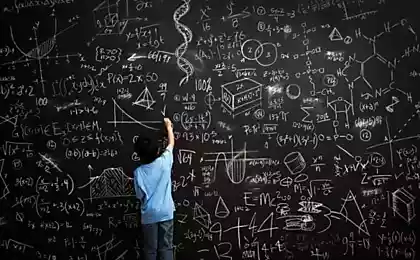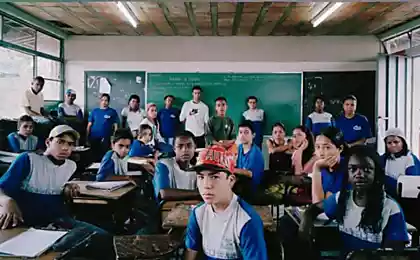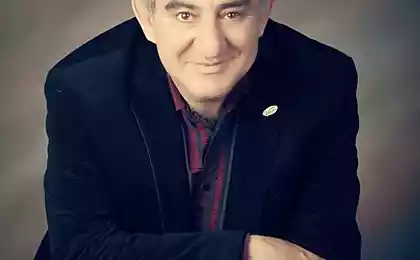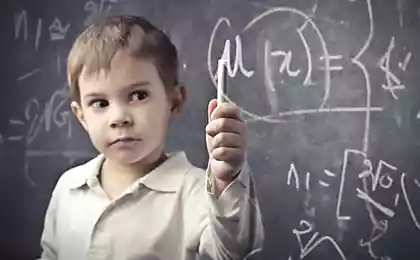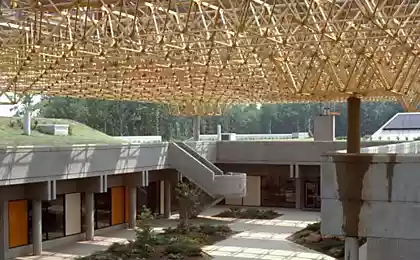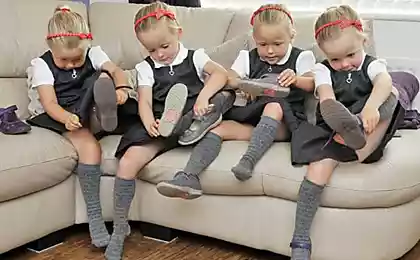638
Experiment Benezet: How a PG year can be equal to six
Famous experiment with teaching mathematics, which force us to reconsider our views on the relationship of the quantity and quality of training.
In 1929, Frank Boynton, head of schools in Ithaca (new York) sent his colleagues on the education sector article on the reform of the school curriculum. The ending sounded almost like a challenge. "We discuss what items need to be added to the school schedule, wrote Boynton. But the child can not spend to study all the time. In this case, because it is necessary to remove?"
"Math", — a month later confidently replied Louis Benezet, who at the time was head of schools in Manchester (new Hampshire). In his opinion, mathematics in Junior high school students only makes you stupid.
I have noticed that the only result of early learning math is boredom and now lulling a child's ability to reason.
Louis Paul Benezet
All basic math skills can be mastered in just one or two years, and before that arithmetic should be mastered through games, examples, and other classes less abstract and closer to children's thinking.
"Why would a ten-year child know how to do long division? The entire arithmetic could be postponed until the seventh year of school — then this program for a couple of years will overtake any normal student."
By this time Benezet for 5 years has managed several schools in Manchester and earned himself not a very good fame: parents and teachers have criticized him because he drove almost all arithmetic from the curriculum of the first two and a half years of training.
He was convinced that the ability to abstract mathematical thinking are formed closer to adolescence. Prior to that, teaching a child arithmetic only coaching.Coaching discourages children to deal with numbers and dulls their ability to independent thinking. The child can memorize the rules, but learn to understand their meaning. Mathematics must enter into the life of the child gradually, not through rote learning, but through meaningful activities.
Benezet proposed to revise the classical scheme of learning built around the three "R's" (reading, writing and numeracy — reading, writing and arithmetic). Place of arithmetic should be a speaking, story-telling (reciting).
Scheme three "R" was formulated in the American pedagogy in the early nineteenth century, but dates back to antiquity and the middle ages. Thomas Aquinas wrote in his "Confessions": "the Initial teaching of reading, writing and arithmetic seemed to me as painful and agonizing as the whole Greek".
Benezet was depressed by the fact that even the most intelligent students do not know how to reason and properly articulate their thoughts. As for arithmetic, they can learn the rules, but do not possess basic mathematical logic (for example, I can't explain why two fractions with the same numerator greater will be one in which the denominator smaller).
In the fall of 1929 Benezet began to organize his experiment. He chose five classes (third through fifth year of teaching), teachers whom agreed to his demands. He deliberately chose a school in which studied the children of poor families: their parents generally were emigrants and had not received a good education.
If this experiment began in a more prestigious school, broke to the scandal.As a compromise, class arithmetic were postponed not to the seventh, and the sixth year of training. Prior to this, students mastered math through games and practical exercises, in which it was necessary to operate with dates, distances, time or money (e.g. to give each other change, or to calculate the time it takes to get from one place to another).
Hours that were previously devoted to math, now held oral classes, where the pupils shared their impressions of the books they read and watched movies, discussed a recent incident and shared some personal stories. The children, who stood silent and gloomy, and could not connect two words, and now could tell that it was interesting to them.
Just one visit to this lesson and can be inspired. The classroom looked like it was soaked joyous, and free mood. [...] If the children glumly pored over the tables, but now they really began to get fun.
The results were visible already after 8 months. When the researchers came to the fourth graders, who studied in the traditional program, and asked them what they read now, the only reaction you can expect is confusion and apathy ("in one class I have not found a single child who would admit to the commitment of the sin of reading," wrote Benezet). Now it was different: it would not be enough and a lesson that everyone shared their thoughts and impressions.
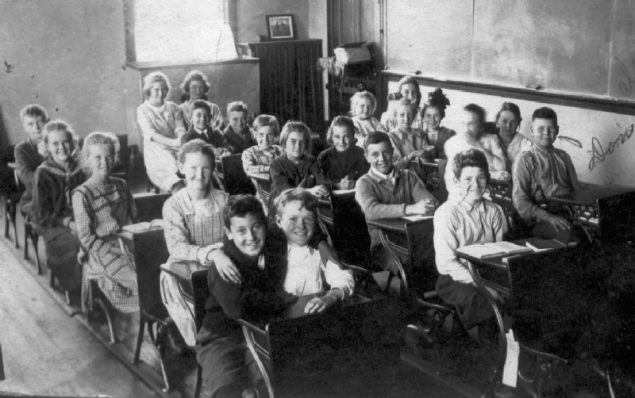
Classroom of the 1930-ies. With mathematics it was even more interesting. In 1936, the experiment ended. The results Benezet expounded in the article in three parts which was published in the Journal of the National Education Association. And they deserve to be reminded of that now, several decades later. By the sixth grade children in the experimental group worse coped with the arithmetic tests than students in the control group, who continued to learn under the standard program. But just a year they've already equaled their results. Moreover, some of the tasks given to them is much easier.
Benezet showed that the initial mathematical skills that children learn in practice, it is easy transformirovalsya real skill in mathematical logic.
Children who did not spend six years in math in just one year caught up with their peers.It is even more surprising when you consider that students from the experimental group Benezet came from not very wealthy families, and could hardly count on help with their studies outside of class. Children from marginalized social groups, as a rule, are the worst because education has almost no value in the environment where they grow. In the experiment, Benezet it was the opposite.
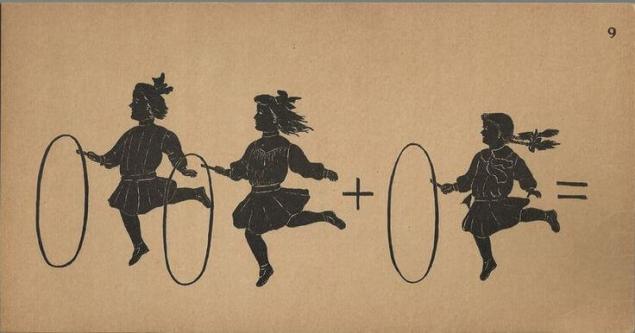
When Benezet checked the results of their study, on gave the students tasks such as the following:
Distance from Boston to Portland by water is 120 miles. Three of the ship at the same time came from Boston to Portland. The first reached the destination in 10 hours, the second 12, the third for 15. After a time, all three steamers were in Portland? This may seem strange, but in the 9th class, only 6 of the 29 students have successfully coped with this task. And the children who have studied the system Benezet, always gave the correct answer in the second grade.
In their publications Benezet not examples of wrong answers, but we can imagine what they were, if we refer to the 1988 study. Students of first and second class were asked to find a solution for the problems of the following type:
On the ship there are 26 sheep and 10 sheep. How old is the captain of the ship? 67 of the 97 students "solved" the problem just by packing 26 and 10. Children learn that math is when you need to do something with the numbers, but regular school program did not allow them to understand what the meaning of these actions. And the saddest thing is that by high school this trend is often only intensified.
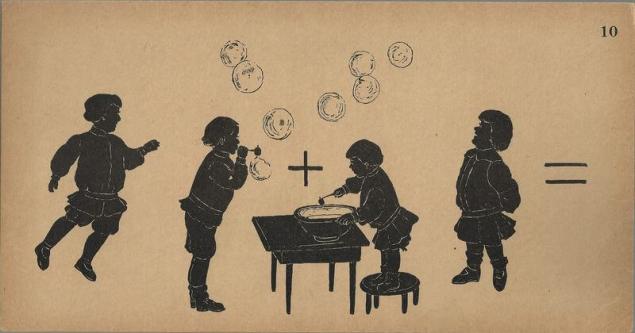
If Benezet experiment was carried out correctly (and its main results there is little doubt), he tells us a lot about what is wrong with the formal school system. It is difficult to resist the temptation to extend the insights he received in the case of mathematics, and other subjects.
As he wrote to Bertrand Russell, people are not born stupid. They are born ignorant and stupid makes them education. Also interesting: I made a terrible mistake, telling daughter to be the student of the exam: fatigue, dullness and fear
This small episode from the history of experimental pedagogy once again tells us about how to restructure the education system to meet the real abilities of each child; that education was not confined to coaching and turned into education thinking.
But for all these problems and already proposed many solutions. The problem, as always, is to use them.published
Author: Oleg Bocharnikov
P. S. And remember, only by changing their consumption — together we change the world! ©
Source: newtonew.com/discussions/mathematics-benezet-experiment
In 1929, Frank Boynton, head of schools in Ithaca (new York) sent his colleagues on the education sector article on the reform of the school curriculum. The ending sounded almost like a challenge. "We discuss what items need to be added to the school schedule, wrote Boynton. But the child can not spend to study all the time. In this case, because it is necessary to remove?"
"Math", — a month later confidently replied Louis Benezet, who at the time was head of schools in Manchester (new Hampshire). In his opinion, mathematics in Junior high school students only makes you stupid.
I have noticed that the only result of early learning math is boredom and now lulling a child's ability to reason.
Louis Paul Benezet

All basic math skills can be mastered in just one or two years, and before that arithmetic should be mastered through games, examples, and other classes less abstract and closer to children's thinking.
"Why would a ten-year child know how to do long division? The entire arithmetic could be postponed until the seventh year of school — then this program for a couple of years will overtake any normal student."
By this time Benezet for 5 years has managed several schools in Manchester and earned himself not a very good fame: parents and teachers have criticized him because he drove almost all arithmetic from the curriculum of the first two and a half years of training.
He was convinced that the ability to abstract mathematical thinking are formed closer to adolescence. Prior to that, teaching a child arithmetic only coaching.Coaching discourages children to deal with numbers and dulls their ability to independent thinking. The child can memorize the rules, but learn to understand their meaning. Mathematics must enter into the life of the child gradually, not through rote learning, but through meaningful activities.
Benezet proposed to revise the classical scheme of learning built around the three "R's" (reading, writing and numeracy — reading, writing and arithmetic). Place of arithmetic should be a speaking, story-telling (reciting).
Scheme three "R" was formulated in the American pedagogy in the early nineteenth century, but dates back to antiquity and the middle ages. Thomas Aquinas wrote in his "Confessions": "the Initial teaching of reading, writing and arithmetic seemed to me as painful and agonizing as the whole Greek".

Benezet was depressed by the fact that even the most intelligent students do not know how to reason and properly articulate their thoughts. As for arithmetic, they can learn the rules, but do not possess basic mathematical logic (for example, I can't explain why two fractions with the same numerator greater will be one in which the denominator smaller).
In the fall of 1929 Benezet began to organize his experiment. He chose five classes (third through fifth year of teaching), teachers whom agreed to his demands. He deliberately chose a school in which studied the children of poor families: their parents generally were emigrants and had not received a good education.
If this experiment began in a more prestigious school, broke to the scandal.As a compromise, class arithmetic were postponed not to the seventh, and the sixth year of training. Prior to this, students mastered math through games and practical exercises, in which it was necessary to operate with dates, distances, time or money (e.g. to give each other change, or to calculate the time it takes to get from one place to another).
Hours that were previously devoted to math, now held oral classes, where the pupils shared their impressions of the books they read and watched movies, discussed a recent incident and shared some personal stories. The children, who stood silent and gloomy, and could not connect two words, and now could tell that it was interesting to them.
Just one visit to this lesson and can be inspired. The classroom looked like it was soaked joyous, and free mood. [...] If the children glumly pored over the tables, but now they really began to get fun.
The results were visible already after 8 months. When the researchers came to the fourth graders, who studied in the traditional program, and asked them what they read now, the only reaction you can expect is confusion and apathy ("in one class I have not found a single child who would admit to the commitment of the sin of reading," wrote Benezet). Now it was different: it would not be enough and a lesson that everyone shared their thoughts and impressions.

Classroom of the 1930-ies. With mathematics it was even more interesting. In 1936, the experiment ended. The results Benezet expounded in the article in three parts which was published in the Journal of the National Education Association. And they deserve to be reminded of that now, several decades later. By the sixth grade children in the experimental group worse coped with the arithmetic tests than students in the control group, who continued to learn under the standard program. But just a year they've already equaled their results. Moreover, some of the tasks given to them is much easier.
Benezet showed that the initial mathematical skills that children learn in practice, it is easy transformirovalsya real skill in mathematical logic.
Children who did not spend six years in math in just one year caught up with their peers.It is even more surprising when you consider that students from the experimental group Benezet came from not very wealthy families, and could hardly count on help with their studies outside of class. Children from marginalized social groups, as a rule, are the worst because education has almost no value in the environment where they grow. In the experiment, Benezet it was the opposite.

When Benezet checked the results of their study, on gave the students tasks such as the following:
Distance from Boston to Portland by water is 120 miles. Three of the ship at the same time came from Boston to Portland. The first reached the destination in 10 hours, the second 12, the third for 15. After a time, all three steamers were in Portland? This may seem strange, but in the 9th class, only 6 of the 29 students have successfully coped with this task. And the children who have studied the system Benezet, always gave the correct answer in the second grade.
In their publications Benezet not examples of wrong answers, but we can imagine what they were, if we refer to the 1988 study. Students of first and second class were asked to find a solution for the problems of the following type:
On the ship there are 26 sheep and 10 sheep. How old is the captain of the ship? 67 of the 97 students "solved" the problem just by packing 26 and 10. Children learn that math is when you need to do something with the numbers, but regular school program did not allow them to understand what the meaning of these actions. And the saddest thing is that by high school this trend is often only intensified.

If Benezet experiment was carried out correctly (and its main results there is little doubt), he tells us a lot about what is wrong with the formal school system. It is difficult to resist the temptation to extend the insights he received in the case of mathematics, and other subjects.
As he wrote to Bertrand Russell, people are not born stupid. They are born ignorant and stupid makes them education. Also interesting: I made a terrible mistake, telling daughter to be the student of the exam: fatigue, dullness and fear
This small episode from the history of experimental pedagogy once again tells us about how to restructure the education system to meet the real abilities of each child; that education was not confined to coaching and turned into education thinking.
But for all these problems and already proposed many solutions. The problem, as always, is to use them.published
Author: Oleg Bocharnikov
P. S. And remember, only by changing their consumption — together we change the world! ©
Source: newtonew.com/discussions/mathematics-benezet-experiment
2 version of the Russian triad Dr. Ivchenko: kill more than 100 types of parasites and fungi
How to cook healthy water from fruits and herbs

